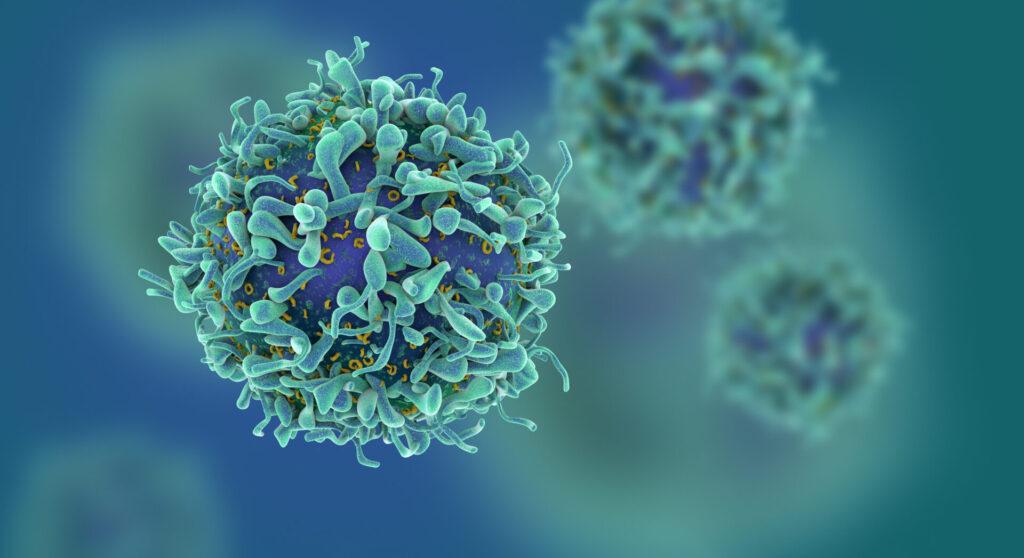How ASA Inhibits Metastasis

How ASA Inhibits Metastasis
Acetylsalicylic acid (ASA) can significantly reduce the formation of cancer metastases, at least in mice. According to current study results, this effect is achieved by strengthening T-cell function.
Today, tumor patients primarily die from metastases and only in exceptional cases from particularly aggressive primary tumors, even though metastatic cancer cells are actually particularly susceptible to an immune system attack. This is because they initially lack the immunosuppressive microenvironment that effectively protects established tumors from the immune system. However, metastases also do not seem to be attacked efficiently enough by immune cells.
That acetylsalicylic acid (ASA) can suppress metastasis is not such a new observation. However, a team led by Dr. Jie Yang from the University of Cambridge in
Using various mouse models, the team was able to show that the key molecule involved is platelet-derived thromboxane A2 (TXA2), which is not formed in the presence of COX-1 inhibitors. TXA2 induces an immunosuppressive signaling pathway in T-cells, which is controlled by Rho guanine nucleotide exchange factor 1 (RhoGEF1). In its active form, RhoGEF1 binds the nucleotide GTP and then suppresses the proliferation and effector functions of T-cells.
Transgenic mice that do not produce RhoGEF1 showed increased immune activation at metastatic sites, leading to a reduction in lung and liver metastases. In mice capable of producing RhoGEF1, pharmacological blockade of TXA2 synthesis, for example by ASA or other COX-1 inhibitors, also prevented metastasis.
Furthermore, it was shown that TXA2 not only has a direct immunosuppressive effect but may also promote the immune evasion of tumor cells in combination with COX-2-dependent mechanisms. Finally, the results suggest that TXA2 promotes the development of exhausted T-cells in metastatic sites and inhibits differentiation into long-lived memory cells.
Thus, this study impressively explains how ASA, as a prototype of COX-1 inhibitors, succeeds not only in intervening in inflammatory processes but also in developing a direct immunomodulatory function with an anti-metastatic effect.
Positive Feedback from the Scientific Community
The study is very positively evaluated in expert circles. The presented mechanism of action, how ASA can prevent metastasis, appears very plausible, said Professor Dr. Edgar Dahl, head of the Molecular Oncology working group and Molecular Pathological Diagnostics at the Institute of Pathology at RWTH Aachen University Hospital. The anti-metastatic effect of ASA comes about “by releasing a brake in the body’s own immune system,” the expert clarified.
Dr. Cornelia Ulrich, Scientific Director and Executive Director of the Comprehensive Cancer Center at the Huntsman Cancer Institute of the University of Utah, also emphasizes that this study significantly expands the mechanistic understanding of the observed anti-metastatic effects of ASA. For the first time, thromboxane A2 has been identified in this context as a potent immunoregulatory molecule.
Source:
https://www.pharmazeutische-zeitung.de/wie-ass-die-metastasierung-hemmt-153639/
https://www.nature.com/articles/s41586-025-08626-7
